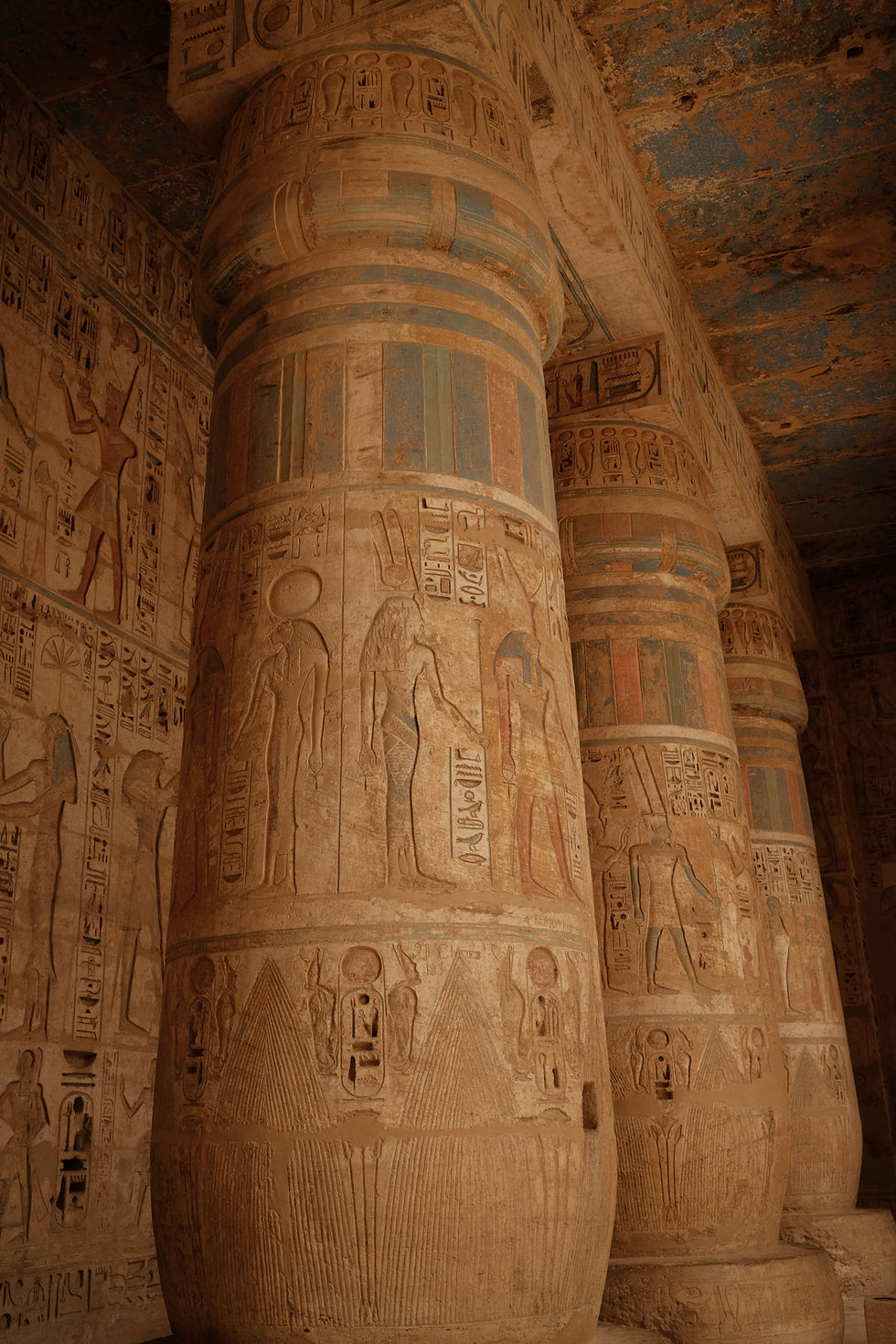
One of the most popular questions I get on this trip is what my favorite place has been so far. It’s a very hard question to answer but I would have to say Egypt. My parents went a couple years ago and fell in love with it, which is what encouraged us to go... and wow, what an incredibly interesting place! It took me a month to process and reflect on this trip, and I’m still so wistfully thinking about it. I’m excited to share what I loved about it, here :)
I studied Anthropology in college, so I came in with even more affinity to learn about the ancient Egyptians! In my 4 years, reading about the culture and characteristics of living or past civilizations had never felt like schoolwork (and I so wish I could have made this into a career if it paid better 😬). But being in Egypt for 10 days, every morning I woke up feeling like a kid getting ready for a field trip.
What I found fascinating about the Ancient Egyptians
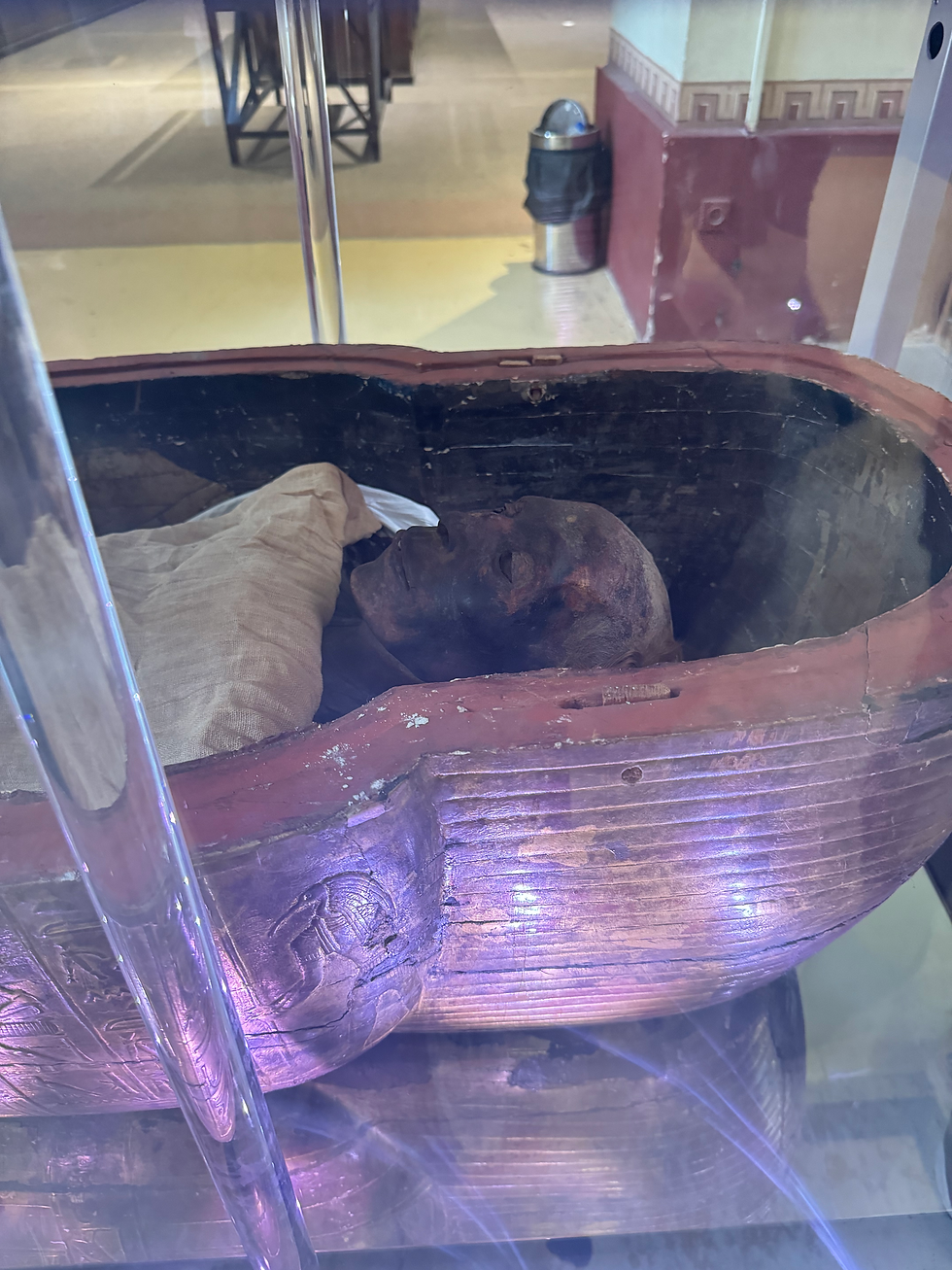
I think what’s distinct about the ancient Egyptians from other civilizations is that they were so obsessed with the afterlife, that they prepared things in their current life as if they were going to time-travel to the future. They went through so much effort and dedication to conserve their buildings and tombs, and to preserve their stories, daily life, and rituals by writing it on the walls. They’ve tried to continuously leave evidence of their existence - from something as monumental as the Great Pyramids, to statues the size of a hand that has the sculptor’s name, who the sculptor is depicting, and the year it was made. Every sculpture or art piece was created with the utmost care, as if they were trying to deliver a message to the future people who would find this item.
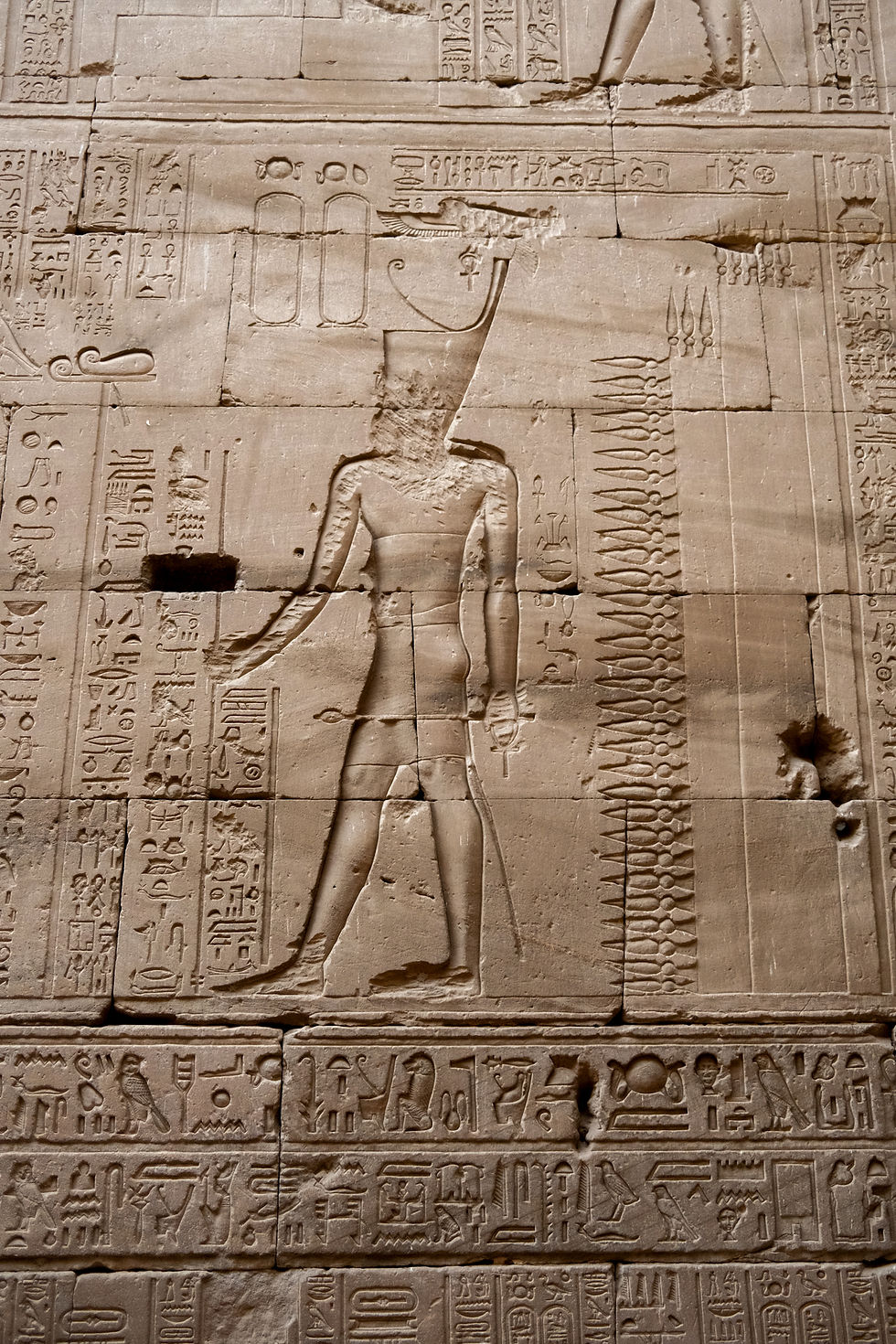
I also enjoyed seeing how much of their life was documented to such detail. There are stories of marriage rituals and funeral rites so clearly displayed, from 3000 BC! We’re able to see the process of how they grew and harvested grains, and see that their meals often had grapes, dates, and figs accompanied with it. And they had a lot of fun too! There are scenes of board games (they were huge board game enthusiasts) and scenes of people playing sports like hockey, handball, archery, and gymnastics.
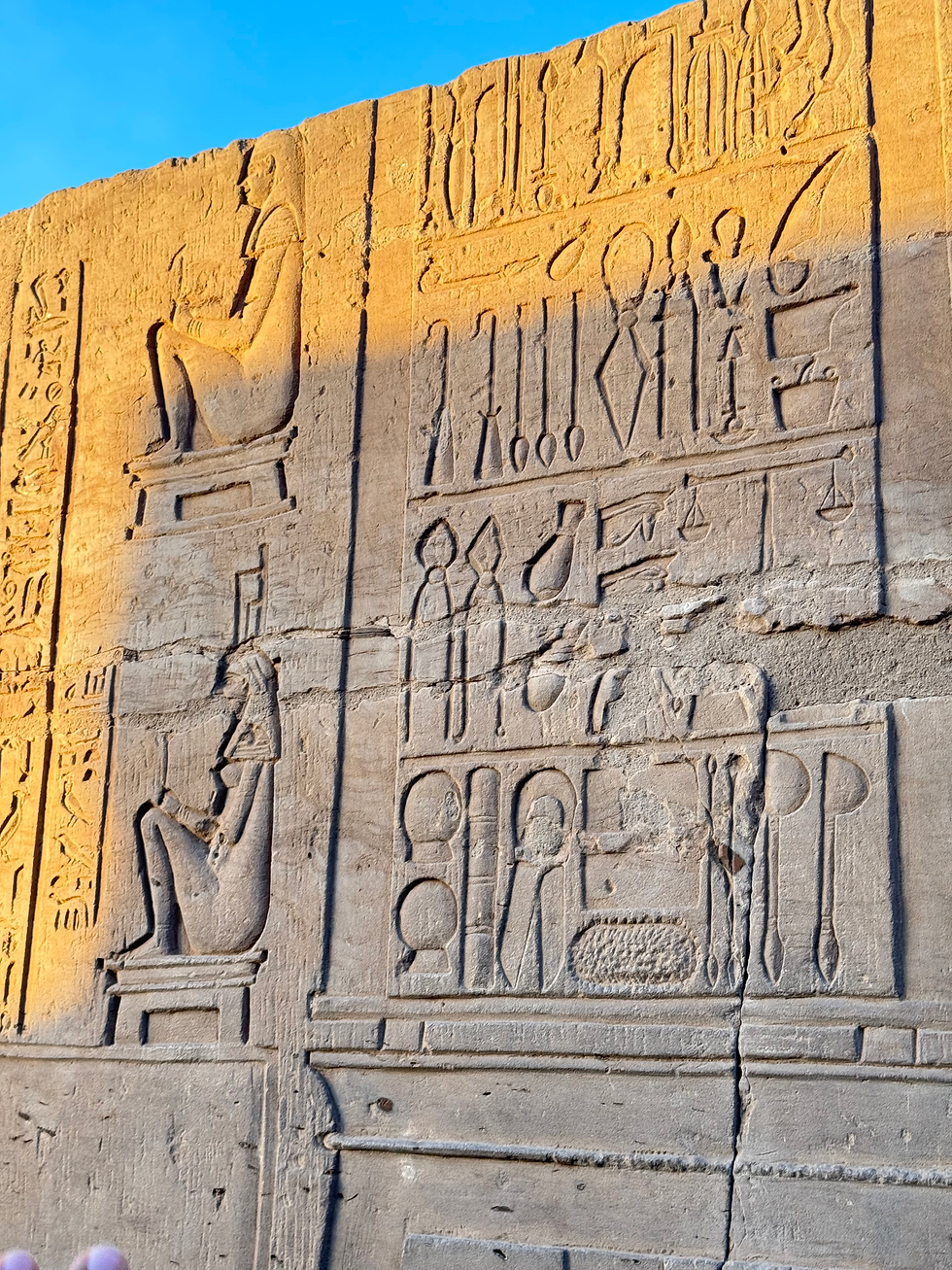
We already know how advanced they are and their protoscience. The way they understood math and geometry to such precise degrees, and how they built a calendar system (that we still use today) based on the yearly Nile floods, is really unbelievable. But something I didn’t know was how advanced they were in the medical field. Their knowledge of the human anatomy was extensive, since they did mummification, leading them to doing specialized surgeries like brain surgery and dentistry from 3000 years ago! Mummies have been found with metal bands on their teeth, like an early form of braces. 😯
And truly, we owe our modern practices and beliefs to ancient Egypt. Egyptians taught the Greeks, who taught the Romans, who created Britannia, who colonized the new world which evolved into America. I'm nerding out that we can trace this all the way back to this many years ago.
Learning about how Egyptians approached death, may have changed my view of it too.
I’m one of those people who approach undesirable thoughts with, “if you don’t think about it, it won’t happen!” The thought of me or my loved ones dying is terrifying, but I think I’ve lightened up about the topic after seeing how the Egyptians think about it. They didn't treat death and dying as icky, gross, or not to be discussed because it's sad. They were well aware of their own mortality, embraced it, and prepared for it. Now after this trip, I can’t say I’m on their level yet where I’d excitedly say to my friends, “lets go shopping for our coffins!” but I can recognize how they accepted it. Egyptians didn’t think about death as the end of life, but rather, as the beginning of the next phase of an individual’s eternal journey. There’s no word in ancient Egyptian where the concept of “death” is defined as “cease to live” since death is continuation to another phase of existence. In fact, the modern Egyptian Arabic word for death, al mawt, is the same as the ancient Egyptian word for “mother” - linking the death experience with birth (or re-birth) on an eternal plane. Moreso, they believe that the afterlife would be very similar to their living world - that's more reason to be happy, strong, and enjoy the present in your current life, in order to carry the same feelings to the next phase 😉
But, just because they were more chill with the concept of death, doesn’t mean they wanted it! Egyptians truly loved their life, and they celebrated it throughout the year. I mean they were real partiers, with scenes of people listening to music, dancing, eating, drinking - there’s even a famous depiction of a drunk lady vomiting.
Some highlights from our trip
Luxor has been named the world’s biggest open-air museum, and it’s worth spending a majority of your trip there. A top highlight for us was the Valley of the Kings: This place looks like a boring mountain gorge on the outside, but walking through the valley you’ll find 63 tombs dating back to 1500 BC - all underground. The deepest one goes 400 feet down! The artwork and beauty of the tombs are really incredible, with tomb scenes displaying what the buried enjoyed doing in their life. There are scenes of people hunting, doing sports, spectating sports, playing music, dancing, even watching naked girls dancing 😅.
And, things are still being excavated today so learning about their world continues to expand - two tombs with 60 mummies were discovered just last year in this valley. So cool! Before coming to Luxor, we listened to this professor's audio lectures - he is fantastic at storytelling and really made this whole place come alive (thanks Sunita aunty, for this rec!)
Cairo food tour: Cairo is an intense city, but any crazy city has intricate things to appreciate 😎 We signed up for a food tour because we knew little about Egyptian food, but this tour ended up being so much more. Our guide Amir was excellent at having us “Frogger” our way through the chaotic streets (it was LIT during Ramadan evenings, let me tell you!) and his breadth of knowledge about the history of Cairo, the neighborhoods we’re walking through, and insight into modern day Egyptian culture, was wonderful and felt like hanging out with a local friend. And, I loved to see any leftover food bagged up and passed out to the homeless we saw on the way. Highly recommend doing this, and supporting a woman-owned business, which apparently is hard to have in Cairo!!
To end, some random things I learned and love, that are living in my head rent-free:
The advancements in math and science are cool and all, but did you know this was the first civilization to perfect the art of brewing beer? I could argue that this is the real gift to humanity. It was so important to them, that to be "busy brewing beer" was an acceptable excuse to be absent from work.
Egypt was such a thriving civilization that there were plenty of job opportunities and for upward mobility. People could explore what type of jobs they were good at, and they were supported in pursuing it and growing in it. And people were always given work - the pyramids weren't built by slaves, but by people whose labor was a form of taxes! When farmers' fields were under water from the annual Nile floods, they were hired to work on the Pharaoh's building projects. All evidence suggests they were happy with this contract, and for the opportunity to work during a time when they usually would not be able to.
Egyptians were known for their gender equality which is more than we can say for many countries, today! The formal legal status of Egyptian women – whether unmarried, married, divorced or widowed – was nearly identical with that of Egyptian men. They were entitled to work, own property, serve on a jury, etc. And in their private lives, they had the right to choose their partner freely, to marry out of love, to spell out detailed prenuptial agreements to protect them and their children, and to divorce for any reason they wished. How did we go forward to go backwards, you ask? Apparently the Greeks hated this 😒 but dispels a belief that women's rights are western world concept, huh?
The first recorded cat was named Nedjem, which means "sweetie." No deeper meaning here, just Awww.
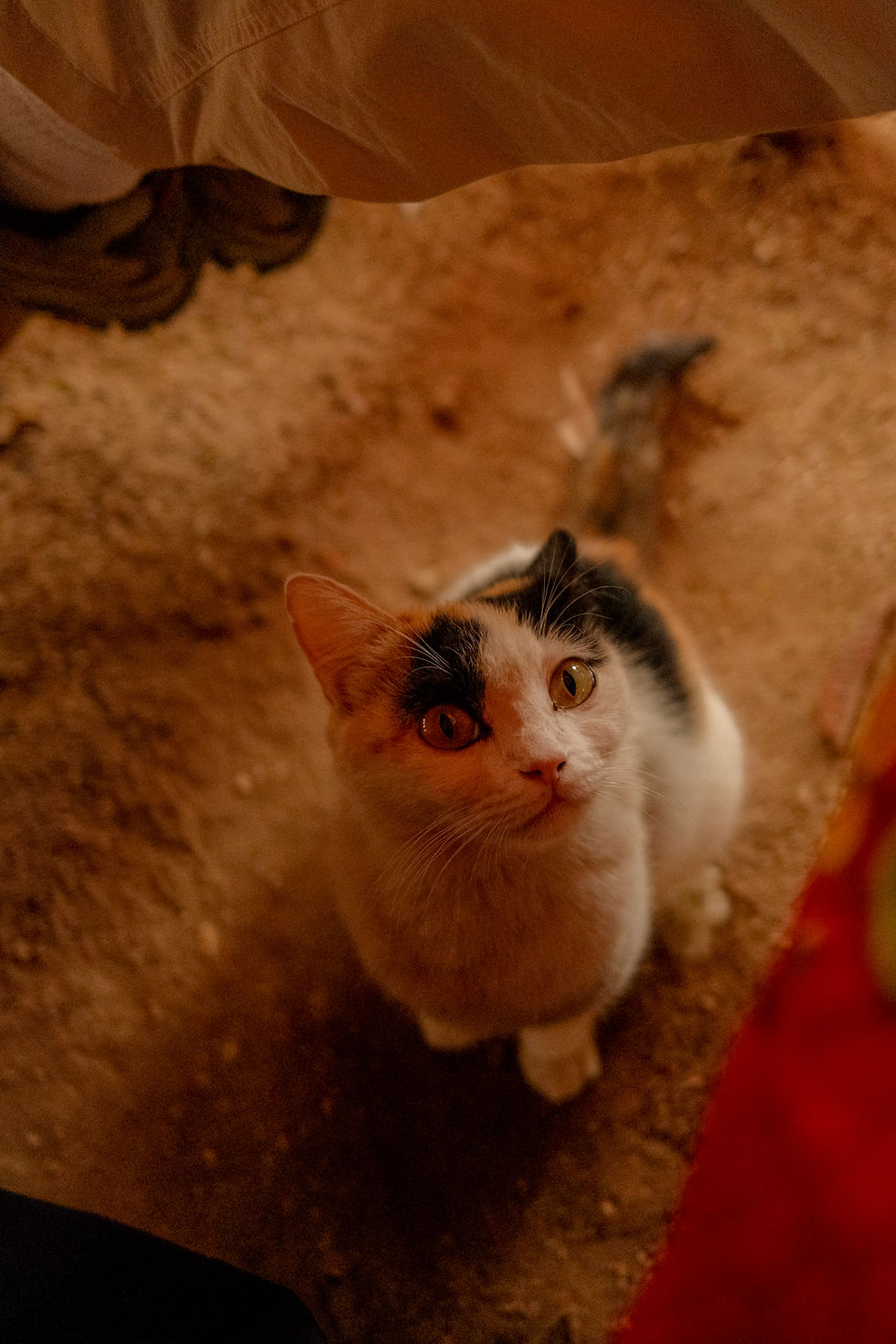
And a special mention here that I was soooo very happy to be joined on this trip by my sister! At this point I was definitely starting to get homesick, and her fun and silly vibes were exactly what I needed. So lucky to have made these special memories with her ❣️❣️






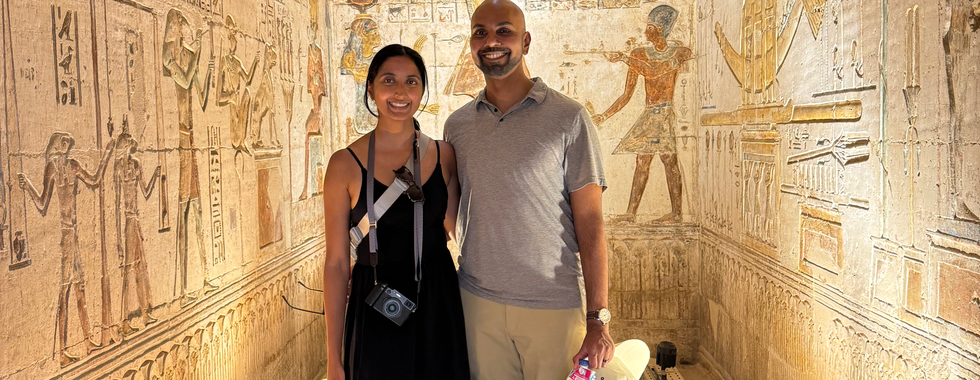
Absolutely enjoyed reading this, makes me want to go to Egypt just nowww! Also - you studied Anthropology - that's so cool!
You had me at board game enthusiasts ;) Wow, this all sounds incredible and dang that last random things bit is awesome!! I knew zero of those things, but it all seems incredibly "ahead of their time" when in actuality I guess it was appropriate for their time and then like you said - we somehow ended up going backwards!
You made me want to go to Egypt again!
This is my favorite post! Especially love that last paragraph.
I agree, you are so lucky!!!